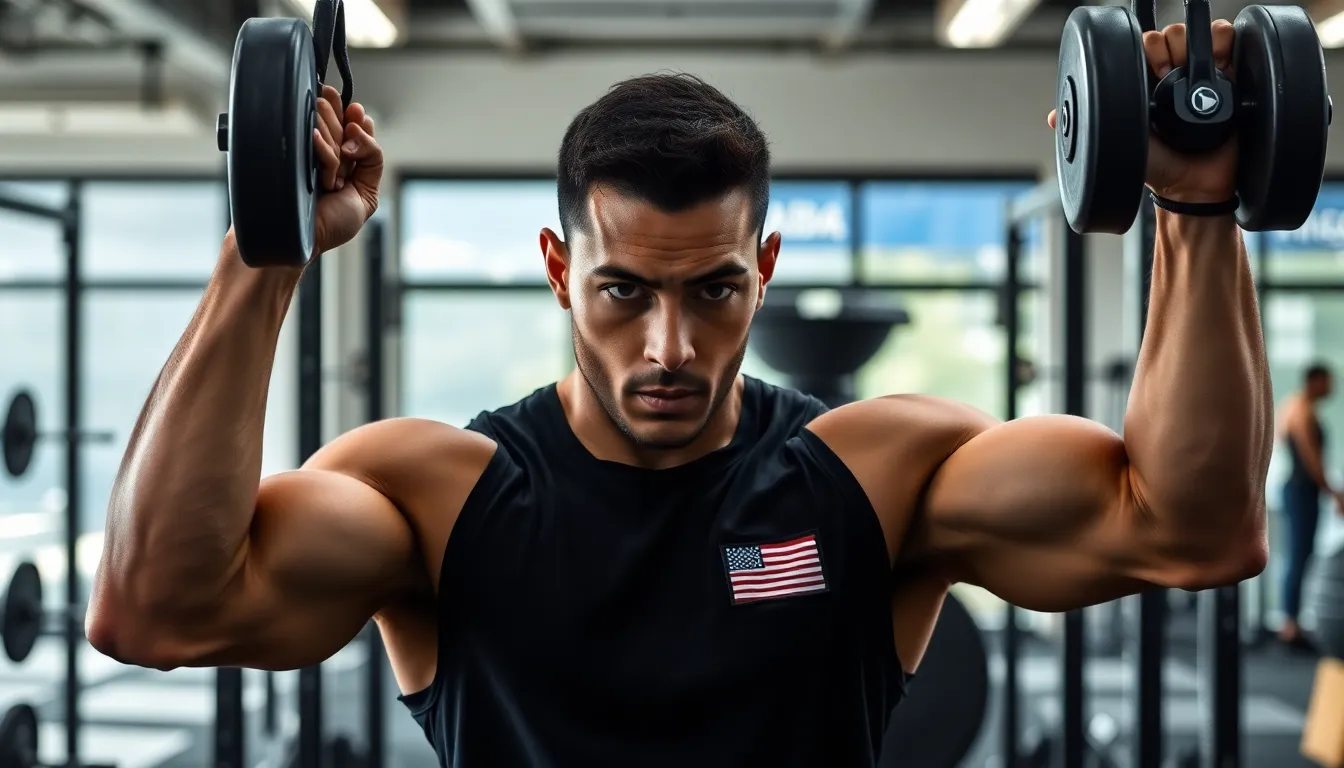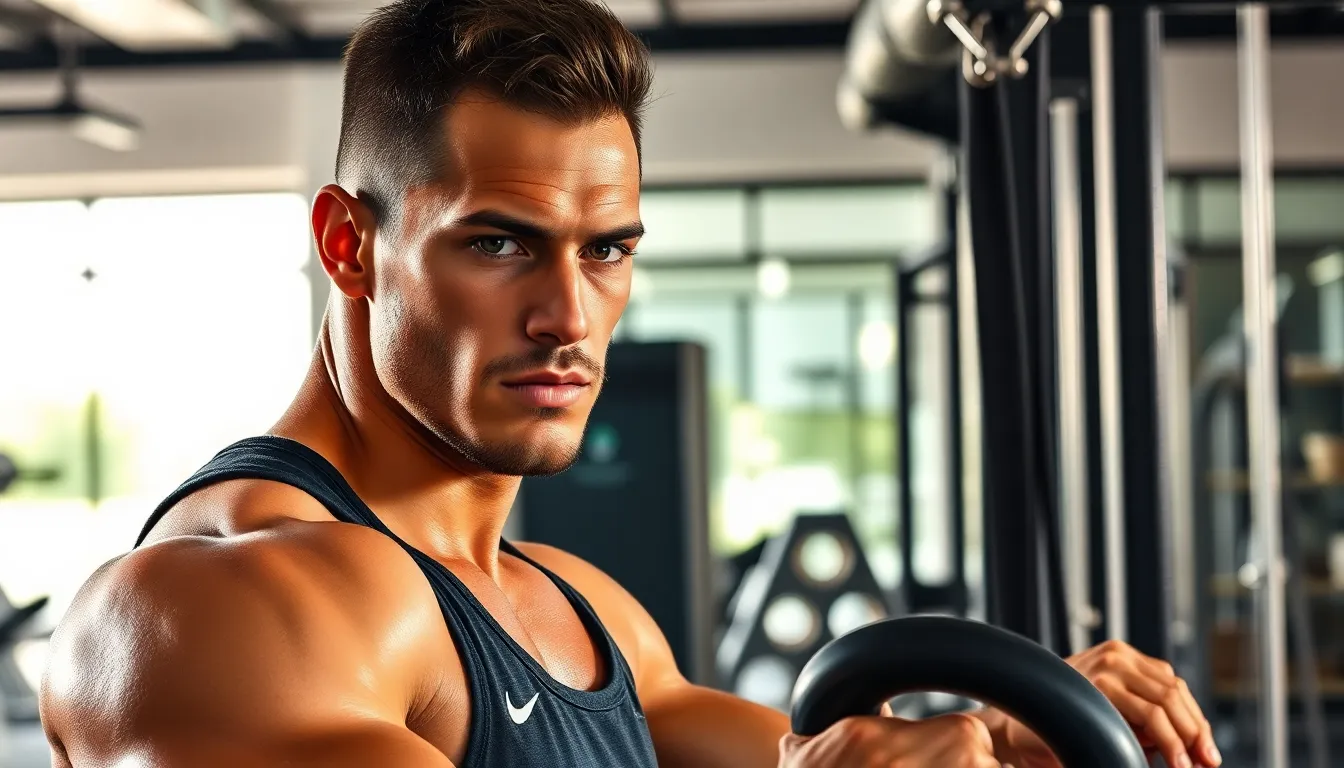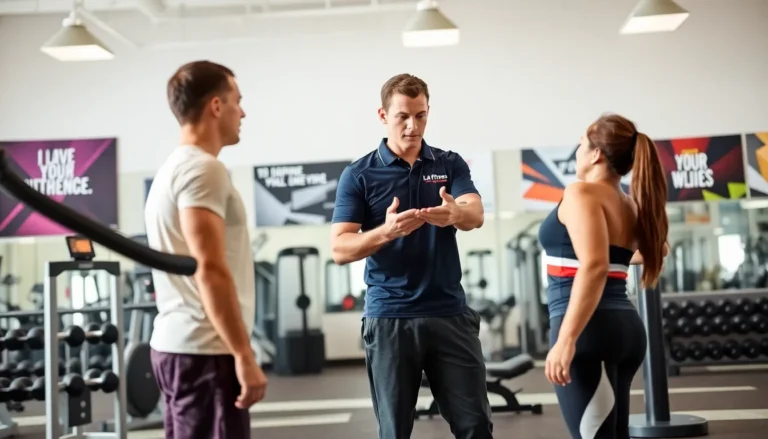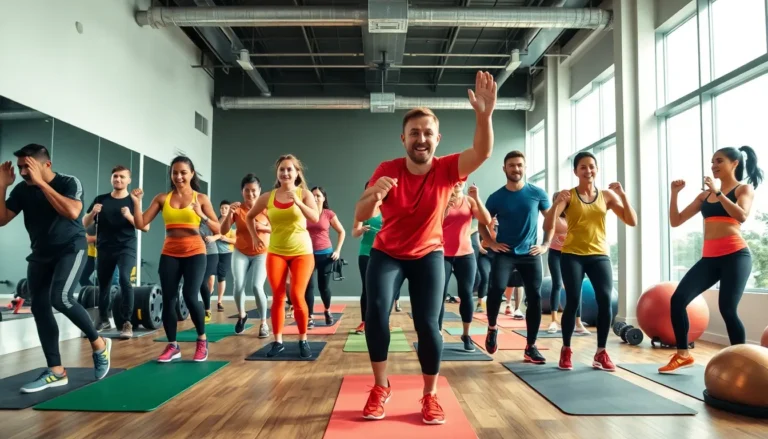Ever wondered what separates elite athletes from the rest of us mere mortals? It’s not just their incredible speed or jaw-dropping strength; it’s a cocktail of mindset, training, and a sprinkle of magic (okay, maybe not the last one). These high achievers have cracked the code to peak performance, and their insights can offer valuable lessons for anyone looking to up their game—whether that’s on the field or in the office.
Table of Contents
ToggleUnderstanding Elite Athlete Insights
Elite athletes exhibit distinct characteristics that contribute to their success. Focus on mental resilience plays a critical role. Research shows that these individuals often develop coping strategies to manage stress and pressure. Motivation becomes another driving force behind their high-performance levels. Many elite athletes set specific goals and continuously strive to achieve and surpass them.
Training regimens stand out as highly structured and discipline-oriented. They engage in meticulously planned workouts designed to maximize performance. Nutritional choices significantly impact their energy levels and recovery. Implementing tailored diets ensures optimal nutrition that supports rigorous training schedules.
Support systems also play vital roles. Coaches and nutritionists often work closely with athletes to monitor progress and provide guidance. Communication within these teams fosters an environment conducive to growth. Feedback loops help athletes refine their techniques and strategies continually.
Emotional intelligence emerges as a key component in elite athletics. Understanding emotions helps athletes navigate the ups and downs of competition. Moreover, their ability to stay focused during high-stakes situations sets them apart.
Learning from elite athletes can benefit anyone looking to enhance their performance. Observing their commitment to improvement offers valuable insights. Strategies like goal setting, mental training, and structured support can apply beyond sports contexts. Applying these principles can facilitate growth in both personal and professional arenas.
Key Characteristics of Elite Athletes

Elite athletes possess unique traits that elevate their performance beyond the average competitor. Understanding these characteristics sheds light on the formula for success.
Mental Toughness and Resilience
Mental toughness defines elite athletes. They thrive in high-pressure situations, displaying unwavering focus. Resilience allows them to bounce back from setbacks and failures, viewing these challenges as opportunities for growth. They consistently visualize success, using mental imagery as a motivational tool. Strategies such as mindfulness and meditation help build mental fortitude, enabling athletes to maintain composure during crucial moments. Furthermore, elite athletes engage in positive self-talk, reinforcing their confidence. This combination of traits fosters a mindset conducive to achieving remarkable goals.
Physical Conditioning and Training Regimens
Physical conditioning plays a vital role in an elite athlete’s success. Rigorous training regimens focus on enhancing strength, speed, and agility. They engage in diverse workout routines that include cardiovascular exercises and strength training. Prioritizing recovery, these athletes incorporate rest days and active recovery strategies to prevent injury and maximize performance. Nutrition complements their training, with tailored diets designed for optimal energy and recovery. Monitoring progress is essential; elite athletes track their metrics and adjust their training accordingly. Consistency in training and a commitment to improvement set them apart in their respective sports.
Nutrition and Recovery Strategies
Elite athletes prioritize nutrition and recovery to optimize performance. Their dietary choices directly influence energy levels, endurance, and overall health.
Importance of Proper Nutrition
Proper nutrition lays the foundation for elite athletic performance. A balanced diet, including carbohydrates, proteins, fats, vitamins, and minerals, fuels training and competition. Carbohydrates provide the necessary energy for intense workouts, while proteins aid in muscle repair and growth. Healthy fats support joint health and hormone production. Studies indicate that hydration greatly affects performance. Elite athletes focus on micronutrients to prevent deficiencies that could impact endurance. Consulting with nutritionists helps tailor meal plans to specific training regimens.
Recovery Techniques for Peak Performance
Effective recovery techniques play a crucial role in maintaining peak performance. Active recovery, such as light stretching and low-intensity exercise, facilitates blood flow and reduces muscle stiffness. Rest days allow the body to heal and adapt, preventing burnout. Sleep quality significantly affects recovery; elite athletes aim for 7-9 hours per night. Techniques like foam rolling and massage therapy reduce muscle soreness and enhance flexibility. Additionally, mindfulness practices promote mental recovery, easing stress and anxiety. By implementing these recovery strategies, athletes can ensure their bodies remain in optimal condition for both training and competition.
The Role of Coaches and Mentors
Coaches and mentors play a vital role in the development of elite athletes. They provide guidance, support, and accountability, all essential for maximizing performance and personal growth.
Building Effective Coach-Athlete Relationships
Effective coach-athlete relationships hinge on trust and communication. Coaches who establish an open dialogue facilitate a supportive environment. Athletes gain confidence through honest feedback and constructive criticism. Shared goals create a unified focus, enhancing motivation and commitment. Respectful interactions, coupled with mutual understanding, strengthen these relationships. When coaches invest in their athletes’ personal development, they help nurture resilience and adaptability, crucial for success in competitive scenarios.
The Impact of Mentorship on Performance
Mentorship significantly influences athletes’ performance levels. A mentor often provides insights that extend beyond technical skills, including mental strategies and emotional support. Experienced mentors help athletes navigate challenges, especially during tough periods. They offer personalized advice that caters to individual strengths and weaknesses. The presence of a mentor encourages a mindset geared toward continuous improvement and lifelong learning. This relationship not only fosters personal growth but also enhances overall performance in their respective sports.
Elite athletes embody a unique blend of physical prowess and mental fortitude that sets them apart. Their journey is marked by unwavering dedication to training and a strategic approach to nutrition and recovery. This combination fosters resilience and mental toughness crucial for overcoming challenges.
The insights gleaned from elite athletes offer invaluable lessons for anyone looking to enhance their performance. By adopting structured training regimens and prioritizing mental strategies, individuals can cultivate their own pathways to success. The support of coaches and mentors further amplifies growth, emphasizing the importance of a collaborative environment. Ultimately, these elements together create a foundation for excellence that transcends sports and applies to various aspects of life.




